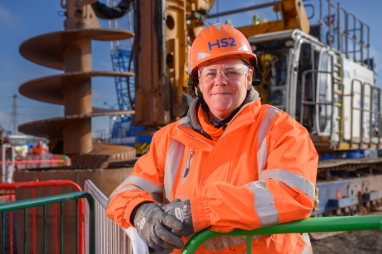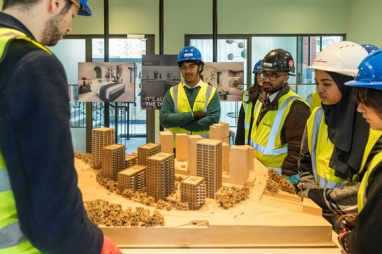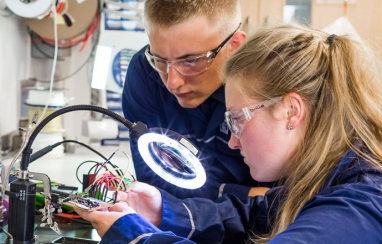- LEGO Air Jordan Flight Fleece Pants , air jordan 1 mid se take flight , IetpShops
- Air Jordan 1 Outlet Store online
- adidas return period calendar today , Langcom? , Yellow adidas Originals Samba OG
- retro 11 jordans authentic - Mindarie-waShops - The Nike gray Air Max Dn is Dropping For Air Max Day 2024
- 100 - Travis Scott x Jordan Jumpman Jack Trainer Sail DR9317 , Jordan 11 Win Like 96 Gym Red Sneaker tees Black Sneakerhead Grinch - IetpShops
- Travis Scott Air Jordan 1 High OG CD4487 100 Release Date Price
- air jordan xxxv cq4227 004
- air jordan 1 retro high og university blue 555088 134
- Nike Blazer Mid 77 Catechu DC9265 101 Release Date
- Air Jordan 1 Blue Chill Womens CD0461 401 Release Date 4
- Home
- News and analysis
- Info hubs
- Events
- Video
- Case Studies
- About us
- Magazine
- Advertising
Produced for the industry by the Association for Consultancy and Engineering
People
Career path: Steve Katesmark, Waterman Group
Steve Katesmark has joined Waterman Group as head of transportation. He sets out his ambition and challenges since leaving Atkins where he was Senior Technical Leader in the London transportation team.

Interview by Antony Oliver
As a transportation professional, why have you joined Waterman
Waterman have a strong reputation for working collaboratively with both public and private sector clients to deliver best value environmental, civil engineering and structural design solutions that meet or exceed their needs. However Waterman’s transportation consultancy services do not have an equally strong market profile (although they do have a strong profile in the retail sector through the Boreham business they acquired). I have joined Waterman because there is the opportunity to change this and grow the transportation division based on the inherent synergies between good transportation advice and the other consultancy services Waterman offer, which will enable our clients to benefit from fully integrated consultancy services.
Waterman has ambitious growth plans – how do you see yourself contributing these?
I will contribute by raising the awareness of Waterman’s transportation capabilities and expertise in the marketplace, building its reputation for excellence and innovation in service delivery, increasing levels of repeat business, expanding the company’s client base and thereby growing the transportation division of the business.
Before joining Waterman, you were at Atkins. Do you expect a major cultural change?
There are cultural differences mainly due to the fact that Waterman are a smaller organisation than Atkins. This means that the senior leadership team at Waterman are much closer to the ‘coal face’ and their clients. I believe this is advantageous for the way Waterman approach service delivery and client care, which directly leads to benefits for their clients.
You have experience of private and public sector clients – is there a difference in the way you have to work with each?
The fundamental principles of providing an exemplary service are the same for all clients regardless of whether they are public or private sector. The only significant difference is that public sector clients are generally more focused on stakeholder involvement, which requires properly thought-through stakeholder engagement strategies. As you would expect, there is also greater public scrutiny of projects for the public sector. However, private sector projects are also subject to high levels of scrutiny, but by the financial organisations providing the funding instead of the public.
Your objective is to develop the London and Southern transport markets. Where do you see the big wins?
The rapid forecast growth of London and prime locations in the South East in particular will generate increased demand for both residential and commercial development and require substantial investment in transport infrastructure. The big wins for Waterman will be through leveraging a greater market share of this growing private and public sector market.
Which sectors do you expect to be the big winners in the next decade? Will it be roads or rail or something else and why?
This will depend in part on the results of the election, but all the main parties are highlighting the need for greater investment in infrastructure. We’ve already had a £15bn commitment on highways across some 100 schemes, and the national Infrastructure Plan published in December 14 highlighted a further £38bn in rail. Delivering this investment will be the challenge, and the supplier chain will have to work collaboratively to deliver this. This is another area where Waterman has some exciting opportunities, as their secondment business (Aspen) is already supporting a large number of local authorities and other consultancies in delivering much needed infrastructure projects.
Do you see success being driven by new build projects or in maintenance of transport infrastructure?
I think success will be driven by both, but probably more so by new build projects. This will be particularly true for public sector sponsored infrastructure, unless the current bias towards capital investment over revenue funding is tackled.
London’s 2050 infrastructure plan sets out the need for new holistic business models to help secure funding in future - is that possible?
I support this objective, however, delivering holistic business models will demand the development of new appraisal techniques, which will require much closer collaboration between transport planners, economists, behavioural specialists, social scientists and other specialists. It also likely to trigger the need for further research to provide the necessary evidence base to support the development of new techniques.
Modern clients seek cost-effective and solutions to their complex transportation problems. Does this make it a more challenging environment for consultants?
Yes this does make it more challenging for consultants. Clients are demanding more at the same or lower cost. This requires consultants to be innovative in their approach to delivery of services. I believe smaller companies like Waterman are more agile than their larger competitors and will therefore be able to rise to this challenge more effectively.
What is your ideal client?
Any client that genially values good advice and value for money over the cheapest price.
You have been in the industry for more than 25 years. What do you see as the most significant changes over this period?
The most significant changes over the period are a) the introduction of environmental and sustainability assessments into the scheme decision making process to supplement the cost-benefit analysis and b) greater political and public understanding of the need for a more integrated approach to land-use and transport planning, although the political commitment to this approach seems to have weakened under the current administration.
All main political parties claim to support investment in infrastructure. Do you fear a hiatus post General Election?
Yes this is a concern as uncertainty is the enemy of investment and when investment stalls, project planning and delivery inevitably slows down.
What for you are the priorities around transport infrastructure for the next government?
Probably a pipe-dream, but a more integrated and long-term over-arching strategy to set the context within which individual schemes can be developed and evaluated.
London has the advantage of an elected Mayor. What do you need to see from Boris Johnson’s successor to protect investment in the Capital’s transport?
Investment in transport infrastructure is absolutely essential to sustain London’s growth. Therefore transport infrastructure funding must be ring-fenced and its sources must be both clearly identified and guaranteed.
You have worked on many major projects across London during your career. Are we getting better at delivering major transport enhancements?
The protracted timescales for delivery of major projects remains an issue. Although timescales do not seem to have come down, the requirements for environmental, sustainability and other assessments that have to accompany applications for new schemes have substantially increased. So the fact that timescales have not greatly increased with this additional assessment burden is evidence of better project governance, planning and management. It is also testament to how consultancies such as Waterman have successfully responded to the challenge of delivering the additional assessment requirements without significantly extending timescales for the planning and evaluation phases of schemes.
Waterman is involved in key regeneration projects such as Battersea Power station and Brent Cross in London. Is the link between regeneration and transport made sufficiently during the planning process?
At the local level generally yes as techniques for forecasting trip generation can normally be tailored to reflect site specific circumstances. However, the understanding of how internalised trips effect overall trip generation is, I believe, still relatively weak. This is partly because insufficient research in this area has been undertaken to provide the necessary evidence base. At a regional level, I also think there is a limited understanding of how the regeneration of one area can affect other areas in a region and the aggregate impact this has on regional-wide journey patterns, e.g. can regeneration of one area result in slower than forecast growth, or even degeneration of other areas in a region?
Resources and skills remain the greatest threat to delivery – how will you overcome this problem at Waterman?
This is where Waterman’s size is a real strength. The business is of a size such that it can deliver large scale, complex schemes, but it is small enough that as an individual, you can make a real contribution to the direction the business takes.This is a very attractive proposition when considering a career move (it certainly was for me) and we are seeing a lot of interest from individuals in the larger firms as a consequence. In the end, the business is only as good as its people, and this is very much reflected in Waterman’s culture, with continued professional development playing a critical role.
What will success look like to you at Waterman?
Success for me will mean that Waterman have;
- an established reputation in the transportation market for excellence and innovation in service delivery;
- an enlarged client base that sees Waterman as one of their most trusted advisers and regularly reappoints the company on transport commissions;
- the ability to attract and retain the best transport professionals; and
- a larger and more profitable transportation division within the business.






Comments